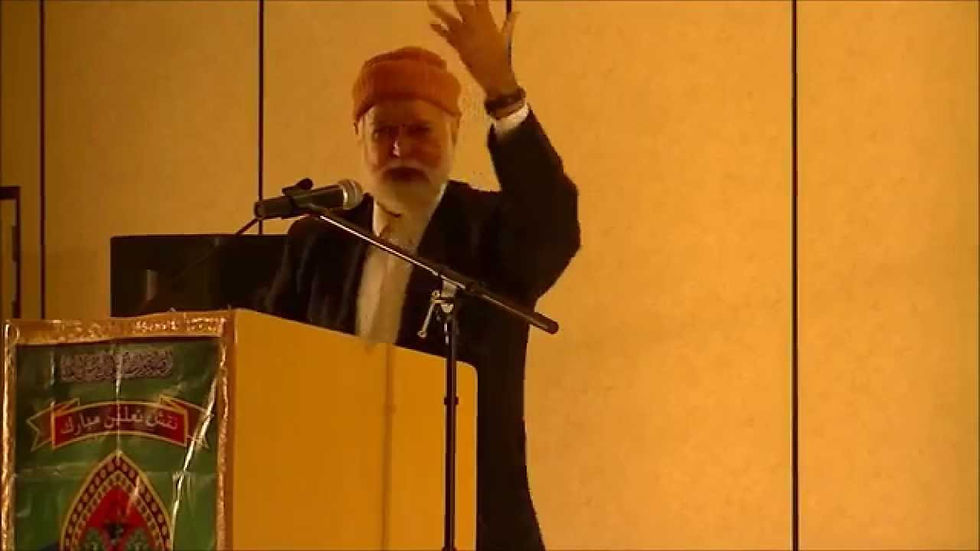Islamic Jurisprudence in Early Islam
- Aslam Abdullah
- Apr 24, 2023
- 4 min read
Updated: Jul 27, 2025
A review of Dr. Hasanuddin Hashmi's work on Islamic Jurisprudence. The book is available at
Islamic Center, Momin Lodge, 1918 Artesia Blvd, Torrance, CA 90504

Dr. Hasanuddin Hashmi, a scholar of the Quran, Hadith, and Fiqh, combines traditional understanding with a balanced and rational approach without compromising any tenets of the faith. His recent publication, "Early Jurisprudence in Islam, is a living testimony of his intense knowledge of his sources.
The book is a primer on Islamic jurisprudence and unfolds the methodology the Prophet and his companions adopted to face the emerging questions of their time.
Based on his Ph.D. thesis he submitted at UCLA in the early 80s, the work dwells on issues such as Pre-Islamic Arabia, Marriage, Divorce, Iddat, Claims, Judgment, Penal Law, Inheritance, Hilf, Adoption, Bay, Riba, Ijtihad. It unveils a process of formulating juristic positions to guide the community.
In the U.S., Dr. Hashmi is the pioneer in organizing Mawlud un Nabi, which has now become an annual Muslim tradition. Thousands of functions focussing on the life of Prophet Muhammad occur all over the country during the month of Rabi ul Awwal.
His intense love for Prophet Muhammad comes from his vast knowledge of traditional and modern resources, and his work asserts that the love of the last messenger is the essence and core of the faith.
Everything he writes is well-documented and referenced. But unfortunately, only a few contemporary scholars have reached his intellect and research level.

Dr. Hashmi comes from an illustrious house of scholars from Punjab that traces its origin to the Salar Masood Ghazi, referred to in the Indo-Pak-Bangladesh continents as the selfless saint. He has the honor of being the youngest Shaikh ul Hadith in a prestigious Islamic seminary in Pakistan. He also had the privilege of rubbing shoulders with Dr. Hameedullah when he delivered his famous lecture series at the University of Bahawalpur.
His scholarship refreshes one's understanding of Islam and empowers the readers with facts often hidden in emotive explanations.
Islamic law has been enlightening the lives of billions of people for the past fourteenth hundred years. It is considered a preeminent institution in the Islam system. The law of Islam has been a focal point of discussion ad research by so many scholars thought the entire history of Islam.
He asserts that the Prophet built the foundation of the Islamic legal system in his lifetime. However, the process of its development continued during later periods also. The question of expansion in the body of law is a continuous operation because evolution in the body of law in every living legal order is a natural process. He provided all the basic principles that helped expand the body of Islamic jurisprudence. These principles were theoretical and practical for every life situation.
During the last ten years of his life, the Prophet established the first Muslim state in Madinah, where he applied those principles in every kind of affair, whether individual or communal. This practice provided the later Muslims with good practical examples of implications, making it easy for them to apply those principles in their useful life and find the solution to their new problems. The Muslim jurists of all generations considered the Prophet's period the decisive standard for legislation. The subject matter of this study is not the detailed legal injunctions of that time; instead, it is about those sources that provided the raw material for the Islamic legal system.
During the fourteen hundred years of history of Islam law, we find several sources utilized during the legislation. Dr. Hashmi broadly divides them into five categories, Qur'an, Sunnah (examples of the Prophet) Ijma, Ijtihad, and current laws.
He divides the history of Islamic law into three periods.
1. Period of the Prophet (from the beginning of his prophethood up to his death in the 11 years of the Hijrah.
2. Period of companions and followers (Tabi'in) (up to the end of the first century of Hijrah.
3. Development period (from the second century up to this time.)
Dr, Hashmi uses primary sources and references considered authentic during the completion of this work. He also studied the writings of modern authors in English, Arabic, Persian and Urdu.
Every Muslim should get guidance from the life of the Prophet; the Qur'an says: "Certainly you have in the messenger of Allah an excellent example." (Quran 33.21)
His study proves that there are clear guidelines about the new issues in the life of the Prophet and that Muslims need to follow these guidelines. The Prophet, in his lifetime, along with the divine sources, the Qur'an, used human sources as well. He adopted the customary laws of that period and exercised his ijtihad. This practice of the Prophet provides an excellent example of dealing with new issues. The Muslims need to practice their ijtihad to find solutions to further questions. The door of ijtihad was always open and will remain open forever. It is up to the people to use it.
In the same way, the Muslims, following the example of the Prophet, have to benefit from the current laws of other nations. They should not consider any good practice of that people a strange thing. Instead, they should realize it as their heritage as the Prophet said, "Every word of wisdom is a lost property of the believer. Anywhere he finds it, he deserves it more than others." The principle for finding a solution to new issues is not their existence in the Qur'an or Sunnah, but not to be against the Qur'an and the Sunnah.



Comments